Photo: Jamie Crawford Walker
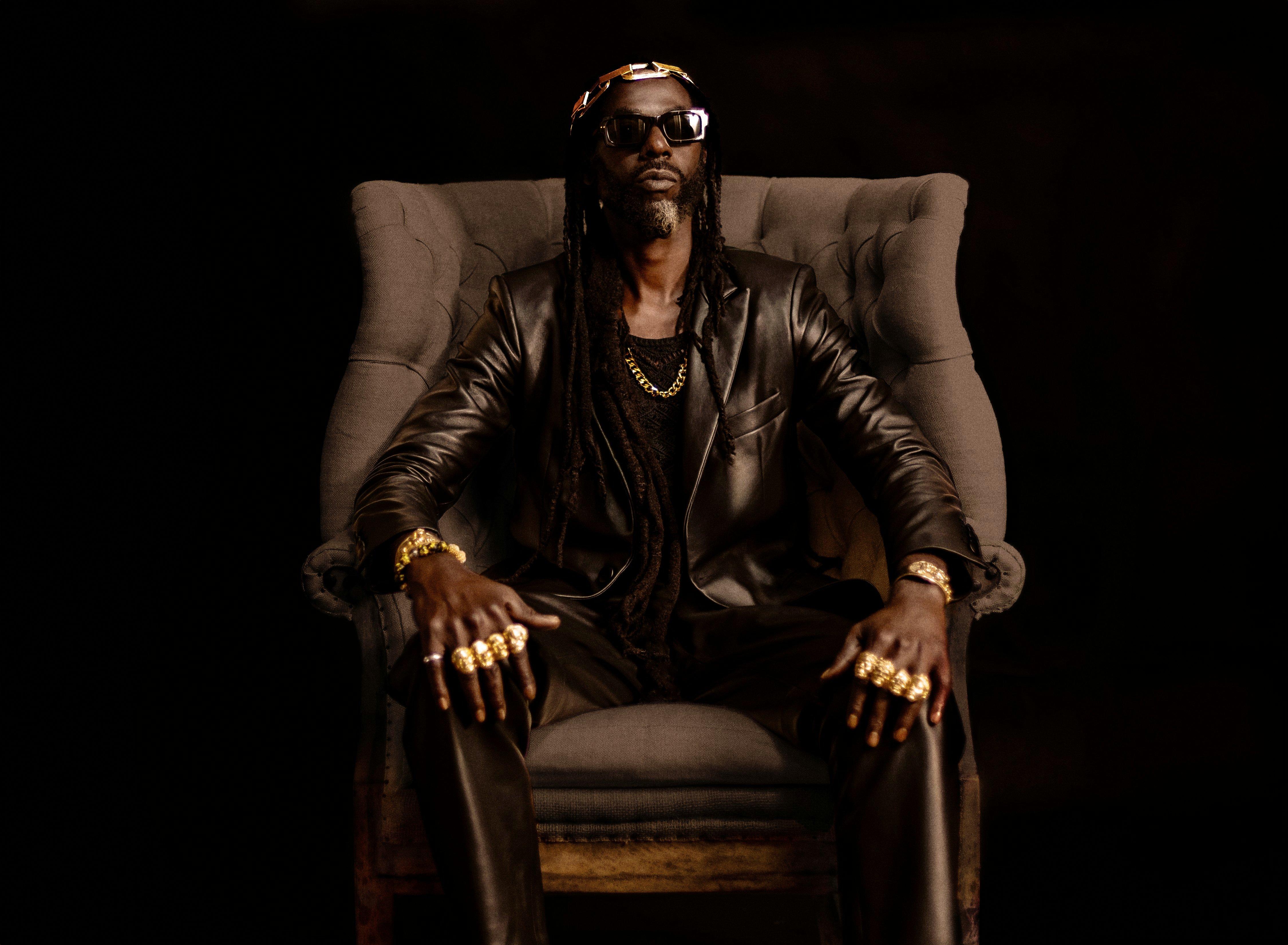
interview
Buju Banton's Untold Stories: The Dancehall Legend Shares Tales Behind 10 Of His Biggest Songs
'Born For Greatness' is the latest entry in Buju Banton’s 30-plus year career. In a wide-ranging interview, Banton reflects on 10 important songs in his ongoing musical odyssey.
When Buju Banton emerged on Jamaica’s dancehall scene in the early 1990s, his ferocious vocals were seemingly incongruous to his youth and slim build, which set him apart from his colleagues. So too did his flurry of early hits: "Bogle," "Batty Rider," "Big It Up," and "Champion." But the precocious teenage sensation also offered serious commentary on such hits as "How Massa God World A Run" and "Deportee."
Thirty years later, Banton continues to defy expectations. His latest album, Born For Greatness, melds reggae and dancehall with elements of R&B, jazz flourishes, crunching rock guitars, even a spirited gospel-tinged closer. "I don’t want anyone to put I in a bubble and say I should only make music like this or like that," Banton tells GRAMMY.com. "Let me be free to create and express the way I feel because I am sure there is someone out there who feels the same way."
Banton has been expressing himself since he was young. Born Mark Myrie, the youngest of 15 children born to a street vendor mother in a poor area of West Kingston, Banton is a descendant of the Maroons, Africans who defeated Jamaica’s British colonizers then retreated to the island’s mountainous interior, where they established communities of free Black people. Buju is a Maroon word for breadfruit and banton refers to a revered storyteller, a name Mark adopted in tribute to the deejay Burro Banton, whom he admired as a child.
Banton began toasting at just 12 years old and, by the early ‘90s, was so popular that the Prime Minister PJ Patterson was among his fans. Patterson missed Banton’s performance at Jamaica’s Reggae Sunsplash 1993 but still desired to see him live. Buju’s close friend/mentor and lovers rock king Beres Hammond granted the Prime Minister’s wish, giving a portion of his set to Buju, then joining him to deliver their hit duet "Who Say." When asked about the Jamaican leader’s request at the time, Buju paused and simply said, "the next prime minister shall know me, too."
Buju released his first album for a major US label, Voice of Jamaica, in August 1993. He followed with 1995’s ‘Til Shiloh, one of reggae/dancehall’s most celebrated and influential releases. Throughout his career, Buju has vacillated between the frenetic dancehall of his youth and the roots reggae associated with the Rastafari way of life that he later adopted.
Buju’s career abruptly stopped on Dec. 10, 2009 when he was arrested at his South Florida home for conspiracy to possess cocaine with intent to distribute. He was briefly released on bail that January and allowed to headline his fundraising concert for his mounting legal costs, which also featured Shaggy, Sean Paul, and Stephen and Damian Marley. A few weeks later, Buju’s Before The Dawn won the GRAMMY Award for Best Reggae Album — though the artist couldn’t attend the ceremony because his trial reconvened the following day. He was found guilty and sentenced to 10 years in a Florida prison.
In December 2018 Buju emerged a free man and returned to Jamaica. Four months later, he headlined his Long Walk to Freedom concert at Kingston’s National Stadium where he drew over 32,000 fans. His first release post-confinement, Upside Down 2020, was also nominated for a GRAMMY Award.
Banton produced the majority of Born For Greatness alongside Jermaine Reid, Stephen Marley and DJ Khaled. On the album’s cover Buju is clad in black leather and adorned with gold jewelry including chunky rings and a thick-linked gold chain wrapped around his head, a provocative image intended to evoke a discussion around mental enslavement.
"The rings are the faces of Frederick Douglas, Harriet Tubman, and the freedom fighters who fought to free us from the chains around our mind because they were adamant in their resolve of freeing the people," Buju explains.
With Born For Greatness the latest entry in Buju’s 30 plus year career, he recently spoke with GRAMMY.com reflecting on 10 songs that span his ongoing musical odyssey.
"Love Mi Browning,"Mr Mention (1991)
Over a bubbling organ riff, Buju declares his love for a Black woman with a light complexion (referred to as a browning in Jamaican parlance). Some listeners perceived the song as Buju expressing a preference for lighter skinned women; the ensuing controversy propelled "Love Mi Browning" to No. 1 in Jamaica and increased the popularity of the captivating, coarse-voiced deejay who recorded it.
"I went to (Kingston’s) Penthouse Records where I met up with (brothers) producers Tony and Dave Kelly, Stumpy the engineer and (singer) Wayne Wonder. We started making music and Dave Kelly wrote "Love Mi Browning" about his then-girlfriend. We started working the song and it just became natural," Banton says.
"We received a lot of backlash, saying we were favoring women of lighter complexion, so I went back in the studio of my own volition and recorded ‘Love Black Woman,’ ("Wi nuh stop cry fi all Black woman/big up all de girls dem wid dark complexion"), which brought balance and silenced the negative energy that was on the surface."
"Deportees (Things Change)," Voice of Jamaica (1993)
Between 1990 and 2005, Jamaica received (proportionately) the largest number of Caribbean nationals deported from the U.S. Canada and the UK. Buju’s huge dancehall hit "Deportees," addresses individuals who had established good lives overseas — perhaps fueled by drug money or other illegal means — with little regard for the well-being of the family members they’d left back home.
His lyrics detail the dramatic changes that occur when these individuals are arrested and convicted: their luxurious lifestyles implode, and they are deported to the land of their birth. "Things change, now unu (you) see say life hard, you never used to send no money come ah yard/You wretch you, you spend the whole ah it abroad, squander your money now you're living like dog."
"I wrote the lyrics and (producer) Dave Kelly made the beat," Buju recalls. "Nowadays, everyone is just frolicking, singing about abstracts; back then, we had to sing about real issues. That was one of the songs that empowered many people, not just in the Caribbean region but throughout the world, to remember where they are coming from, strengthen the Diaspora and make sure they have something at home to fall back on because if you can’t grow where you are transplanted, you have to grow where you are planted."
"Murderer," 'Til Shiloh (1995)
At the height of Buju’s frenetic dancehall success, he dropped a forceful commentary, recorded on the classic 1980s Far East reggae riddim, which had great resonance in the dancehall but also appealed to fans that preferred the more cultural side of Jamaican music. "Murderer", initially released as a single in 1993, decried the island’s escalating violence that claimed the life of one of Buju’s close friends (Anthony "Panhead" Johnson).
"The song was written at a time when the murder rate exploded in Jamaica, everyone had an enemy, and one of our beloved entertainers got caught up in that drama," Buju proffers. "I was on tour in Japan when I got the news that Panhead was killed; I sat in the passageway of the hotel with Frankie Sly and Wayne Wonder and started writing ‘Murderer, blood is on your shoulder/kill I today you cannot kill I tomorrow.’ Jamaica gravitated towards the song’s realness; the sentiment that was expressed was one that we shared because ‘you can hide from man but not your conscience.’"
Thirty years after he wrote and recorded "Murderer" bloodshed in Jamaica, and throughout the world, remains out of control. "If you understand the political system that is in place, all these things are designed," Buju adds. "I try to guide the world with positivity, despite all the negativity in which my name has been typecast."
"Untold Stories," ‘Til Shiloh (1995)
Throughout ‘Til Shiloh — which means until kingdom come — Buju masterfully blends his boisterous dancehall foundation with Rastafarian roots reggae, Nyabinghi drumming and African choral chants, among other influences.
The album’s most surprising track, "Untold Stories," is a stunning, semi-acoustic ballad, with Buju’s visceral, supple sung vocals recounting the struggles of the poor in Jamaica, and all over the world: "I’m living while I’m living to the Father I will pray/only He knows how we get through everyday/will all the hike in the price arm and leg we have to pay while our leaders play." He goes on to instruct the youth to learn from his experiences, "when mama spend her last and send you to class, never you ever play, it’s a competitive world for low budget people, spending a dime while earning a nickel."
Buju was just 22 when he wrote and recorded "Untold Stories," the song’s heartfelt insights and his emotive delivery undoubtedly born of the hardships he and his family endured. "That song was the beginning of a transition in my life where I was exploring my creativity and where the Father wanted me to go in terms of the messages I must carry to the masses," Buju explains. "It was just perfect, a heaven-sent song, I have to say."
"Give I Strength" feat. Ras Shiloh, Inna Heights (1997)
As the title suggests, the superb "Give I Strength" is an invocation for the resilience to get through life’s obstacles, to "live out the greater part of my days." Ras Shiloh’s quivering, soulful tone is an ideal complement to Buju’s granular timbre as they trade verses over an exquisitely crafted reggae rhythm.
"Ras Shiloh was a young emerging talent, American born from Jamaican parents, and I fell in love with his dynamic voice the first time I heard it," Buju shares. "He’s a youth that love Rastafari. [Producer] Donovan Germain invited him to his Penthouse studios one day and he just came up with the perfect renditions to complement what I was saying.
"'Give I Strength' is so relevant in this time, before time and after time, because we all need the strength to be better individuals, so it was natural, pure," Banton says.
"Small Axe" feat. King Stitt, Inna Heights (1997)
One of the earliest practitioners of the Jamaican art of deejaying (also known as toasting), the late Winston Sparkes, a.k.a. King Stitt, was pivotal in elevating the role of a sound system deejay into an attraction in his own right. One of the first deejays to have a hit record (1969’s "Fire Corner,") Stitt rarely recorded after the 1970s, but his inimitable toasting graces the rollicking ska track "Small Axe," featured on Buju’s 1998 GRAMMY-nominated album Inna Heights.
Buju’s first European tour in 1991 circuitously led him to record with Stitt. "I spent six weeks in Europe, I went to Germany, Austria and I knew nothing of making reggae music, I was making dancehall music," Buju reveals. "I came home with the intent to make reggae music. I booked time at Tuff Gong Studios with a group of musicians and said we are going to make live music and they said, ‘are you serious?’ I said ‘yeah, I want to make ska, rocksteady and reggae music.’"
That session netted "Hills and Valleys," "What A Mighty Dread" and"Small Axe." Banton continues, "Making ska was more important than just the instrumental; it provided an opportunity to tap into the richness of our musical culture and to work with a great man like King Stitt. Maybe it was the divine instruction I had to follow as a servant and I did."
"Pull It Up" feat. Beres Hammond, Unchained Spirit (2000)
Despite the very different lanes they occupy in Jamaican music, there’s an undeniable vocal chemistry between Buju Banton and Beres Hammond that has yielded many great singles, including their timeless celebration of the dancehall "Pull It Up." Over an irresistibly danceable reggae rhythm, Beres’s smoky sung descriptions of the dance, "Everywhere I look is pure skankin’, I see no statue around," are punctuated by Buju’s irrepressible, raspy ponderings, "Without di dancehall, a wha we woulda do? When reggae music call, you must answer, too."
Buju detailed their initial encounter: "I first met Beres at a studio in 1992. I was the guy they sent out to buy Guinness, lunch, I was just coming up and I had to pay my dues. One day, I asked Beres, 'Why do you drink so much Guinness?' He said, 'After it passes the heart, that’s when I really start to sing,'" Buju laughingly recalled. "He had a reservoir of knowledge that he was hungry to pass on to a young man like me who was hungry for knowledge where the music is concerned.
"I didn’t get an opportunity to work with him until I proved that I understood the rudiments of music. Then he welcomed me and ever since, we have communicated musically. It’s always a mystical communication with him: he sings, and I am able to feel what he’s singing about and communicate it to the next generation in layman’s terms."
"Driver A," Too Bad (2006)
Set to the sinewy, bass heavy pulse of Sly and Robbie’s Taxi riddim, Buju instructs his driver to "Drop this Arizona [ganja] round Albermarle [a road in Flatbush, Brooklyn]" cautioning him to "remember the damn speed limit because if you run into the feds, that is it."
The clever, detailed lyrics weave an engaging, sometimes humorous narrative and Buju’s gritty delivery is so authentic that "Driver A" was immediately referenced when news broke of his arrest, three years later. Buju says the song was inspired by the hustling he saw going on in America.
"When I come to America and see how the people live, in their day-to-day life, they have to hustle, they have to go hard, everybody has something going on," he says. "Some people can relate, and some can’t relate but it’s a song in ode to those who hustle. It doesn’t get better than that."
"Buried Alive," Upside Down (2020)
Since his release from prison, Buju has said little (directly) in his interviews or through his music about his time in confinement. "Buried Alive" is a powerful depiction of the fortitude required to survive such an ordeal. It’s essentially a rock song with a sputtering tempo, featuring an overlay of searing guitars that accompany Buju’s anguished vocals: "Buried alive but I’m still breathing, I don’t know what tomorrow may bring but I got a feeling/I am alive, there must be a reason, I was given one more chance, my heart is still beating," sings Buju.
"They planted a seed, and I was allowed to grow. And grow I did," Buju said regarding the song’s subject matter. "My captors expected me to be bitter, but I said, 'Father forgive them because they know not what they did.' My mission still continues, I have not done anything different than what I was doing before, which was making music and loving people."
When asked if he wrote songs during his imprisonment, Buju says. "I did what I had to do to stay alive, it was that simple. Whether it was writing songs, teaching, being a source of light in a place of darkness, I was doing what I had to because the Lord ordained that I had to be there."
"Let My People Go," Born For Greatness (2023)
Buju concludes his latest album with a rousing gospel-influenced cry for personal liberation and the freedom of his people. The title is taken from a refrain that echoes throughout "Go Down Moses," a centuries-old African American spiritual, originally written about the exodus of the ancient Jewish people from slavery in Egypt. "Let My People Go" is shouted in a call and response fashion throughout Buju’s song, written about present day atrocities: "The whole world is in bondage (let my people go), tell these tyrants to let go (let my people go) what remains they may not be able to salvage (let my people go), they shall be riot, and rooting, and raving, and ravaged (let my people go)."
"The message is needed now more than ever," Buju states. "Freedom is being eradicated every day and people are being herded. The whole world is in bondage and the only hope is the truth, so we remove the veil from our eyes so we can see everything and everyone for who they are. The truth shall make you free. We are tired of this perpetual struggle, we are tired of this physical existence, just let my people go."

Photo: Steve James
interview
Living Legends: Beres Hammond On His Enduring Career, Timeless Music & 'Brand, Jamaica!'
Beres Hammond has had a lengthy career in reggae, both as a member of Zap Pow and as a solo artist. The two-time GRAMMY nominee discussed his enduring popularity and what he hopes younger artists can learn from his story.
Prior to performing his first song at Reggae Sumfest 2024, Jamaica’s largest music festival, legendary vocalist Beres Hammond shared a concise but important message. "Jamaica," he bellowed, seemingly as a greeting, which he followed by shouting "brand." "We are a brand! I am, you are. Brand! Say it," he instructed. "Brand, Jamaica!"
Throughout his July 20 Sumfest set, Beres interspersed the catchphrase "brand, Jamaica," as if reminding the audience of 15,000 (and the younger artists backstage) at Montego Bay’s Catherine Hall, of Jamaican music’s significant legacy and widespread impact. Countless musical gems comprise brand Jamaica, but few, if any, are more precious than the songs of Beres Hammond.
Born Hugh Beresford Hammond in the small fishing village of Annotto Bay, the two-time GRAMMY nominee first gained notoriety in the early 1970s fronting reggae/R&B fusion outfit Zap Pow. As a solo artist, Beres’ songs primarily explore the erratic complexities of romantic relationships; his charismatic, powerfully granular vocals have been likened to that of soul legends Otis Redding, Teddy Pendergrass and Sam Cooke.
"I never thought I’d reach this point," Hammond tells GRAMMY.com. "Even now, I still show respect to the folks that helped me to grow and are helping me to still be relevant."
At Sumfest, accompanied by his superb Harmony House band and three flawless female backup singers, Beres delved into his beloved catalog, as the audience, spanning three generations of fans, loudly sang along. After performing his first No. 1 single, the 1976 soul nugget "One Step Ahead," which held the top spot in Jamaica for over three months, Beres reminisced onstage, "People thought I was an American guy. It was my first taste of success, but I had no money, I couldn’t even ride the bus. I was broke!"
Beres released a spate of popular singles beginning in the late 1970s into the mid-1980s yet he continued to struggle financially. His situation improved with his initial release on his own Harmony House label, the 1985 hit "Groovy Little Thing."
A sequence of hits followed recorded for various Jamaican producers including 1987’s "What One Dance Can Do," which spawned several answer records (including Hammond's own "She Loves Me Now"). His 1990 defiant social critique, "Putting Up Resistance", produced by Tappa Zukie, remains one of the biggest reggae songs from that era.
Working with producer Donovan Germain’s Penthouse Records, in 1990 Beres laid his vocals over a riddim called "A Love I Can Feel" (after singer John Holt’s 1970 hit, itself a Temptations cover). The resultant "Tempted to Touch" topped reggae charts internationally and commenced a stream of Penthouse hits for Beres that also included "A Little More Time" and "Who Say," collaborations with a gruff-voiced teenaged sensation, Buju Banton.
As his fan base expanded throughout the Caribbean and reggae Diaspora, alongside increasing acclaim for his stellar songwriting and passionate, pliant vocals, it was inevitable Beres would attract major label interest. He signed to Elektra Records, for whom he released just one album, the outstanding In Control, in 1994, featuring the sublime, sultry R&B flavored single "No Disturb Sign."
Between 1996 and 2018 Beres released seven self-produced studio albums through his Harmony House label’s joint venture with Queens, NY based VP Records, including two GRAMMY nominated titles in the Best Reggae Album category. Beres received the nod for his 2001 album, Music is Life at the 44th GRAMMY Awards and again at the 56th GRAMMY Awards for his 2012 album One Love, One Life.
Beres has collaborated with dancehall superstars Sean Paul and Popcaan, and his work has been referenced by Jamaican artists including singer/songwriter Tanya Stephens and sing-jay Mavado. Although he hasn't had a U.S. mainstream hit, Hammond's music is nonetheless recognized by some of the industry’s biggest names. In 2012 Rihanna tweeted the lyrics to Beres’ "They Gonna Talk," obliquely addressing her then rekindled relationship with Chris Brown; at an event in Barbados, she was seen singing along to a medley of Beres hits. Drake conveyed his fondness for the iconic vocalist by retweeting a fan’s declaration that she’d like Beres Hammond to sing at her wedding. Wyclef Jean conclusively expressed the veneration due the bespectacled songster on the outro to his 2001 duet with Hammond "Dance 4 Me," bluntly stating, "All you fake singers, bow down to the legend."
Beres Hammond's most recent single "Let Me Help You" was released on May 3; VP Records says a new Beres project is possibly due by the end of 2024. In between rehearsals for a spate of performances in the New York tri-state area, Beres Hammond sat down with GRAMMY.com and discussed his enduring popularity, his messages to younger artists and the meaning of "brand, Jamaica."
Welcome back to New York City. I was at Reggae Sumfest and I saw your wonderful performance. There’s something extra special about your performances in Jamaica, seeing, hearing different generations of fans singing along to your songs.
What I like most is when the young folks, teens and 20s say, "My mom used to listen to you when she’s in the kitchen working, that’s how I know these songs." They still love them, still sing them. It makes me feel like I came out here to do a job and everything’s been accomplished.
Why do you think your music has such vast appeal among various age groups?
I think it’s the way I present my songs. I make it so easy for everyone to have access. I don’t use Wall Street words; I make it A-B-C. I just do my thing in the simplest manner so everybody can sing it!
You just performed two sold out shows at the Coney Island Amphitheater and the New Jersey Performing Arts Center part of your Forever Giving Thanks tour. So many decades after you started out, that must feel extremely gratifying.
Everyday feels like a new day on the job. I’m giving thanks that I’m in good health and I’ve still got some voice left. All the folks around me, like the band and crew, they’re treating me as if we just started. When you have people around you like that, it’s almost like the journey has just begun.
Have you been working with the same band members for all these years?
For a lifetime, almost. Some have been with me for over 30 years. For the newest members, it might be 10 years.
Throughout your Sumfest performance you intermittently shouted, "brand, Jamaica!" What does that mean?
I was talking about me, what a beautiful brand, but also Jamaica, itself, to the world. Helluva brand! I join the folks that still have Jamaica on the world map as a brand to be reckoned with. Because we nah go nowhere. We deh yah! [We’re here].
I’ve always thought of myself as a brand and upcoming artists should recognize the legacy that’s left here for them. I say "brand" again, to make them understand the role they’re supposed to be playing in what was handed down to them. Be proud of what you’ve got because you are standing on some broad shoulders; be careful how you step on those shoulders.
Coming up in the 1970s and early '80s, whose shoulders did you stand on?
What introduced me to wanting to sing was a few voices including Otis Redding, Sam Cooke, Stevie Wonder, he’s still amazing. I used to love Aretha Franklin and I still love Patti LaBelle. I listened to those voices and said, "Yeah, I would love to sing like them." Then checking on my Jamaican folk, Alton Ellis, Delroy Wilson, hearing those voices, I thought, there must be something out there for me.
Learn more: Remembering Coxsone Dodd: 10 Essential Productions From The Architect Of Jamaican Music
Are there any artists you are mentoring, artists that are standing on your shoulders?
Some of them come up to me and say Father B — they call me all kinda names, Father B, Dada, and they give me some nice accolades. I don’t seek them out, they find me and I always have the right things to say to them, if they ask. Kids still want to learn and being around me, you will learn many things.
Thirty years ago, in 1994, you released your album 'In Control' for Elektra Records. It's still one of my favorite albums.
At that time Elektra went into some merger. The beautiful Elektra crew working with me — some got fired, some went to other places; it was a mess, man. That had a great effect on what the album should have done and really turned me off from Elektra and major labels. This is how people with their big bag of money treat people, come in, push us around. But through the years, I’ve learned that [Elektra] took my music to places that I don’t think I would have reached, so it helped me along.
You continue to have a very successful career, but I can’t help but wonder, had 'In Control' received the push it should have, would your music be better known beyond a reggae audience?
I don’t know, but I know where I stand now and where we are still aiming to go. That never came out of our focus because, hey, the sky’s the limit.
Where are you aiming to go, what are some of the things that you’d still like to do?
I’d like to sing that song that makes the whole world sing along. I’m not sure if I’ve made that one yet.
I hope that my Jamaican brothers and sisters who are making music take it seriously and remember, you’re an influence. Ask yourself, what kind of influence do you want to be to the next generation? Do you want to be the one to make them have a better education? Do you want to be the one that makes them aspire to be leaders? Or do you want to be the one to send them to prison?
Is there any place that you haven’t yet performed but would like to?
People have asked me, what’s my favorite place to perform? I still don’t know. My favorite place is anywhere in the world; once you gather to see me, oh God, that’s my favorite place.
How has the music industry changed in the years that you’ve been in it?
You have to brace to face any new challenge in music. But all I’ve ever wished for is, no matter what kind of changes the music goes through, keep the thing positive so the people can learn. I can’t tell the younger generation what to do. I had my time and did what I had to do; you have to allow them to be themselves, too. Whatever changes the new generation wants to make, I’m there with them; just keep those values and you’re good.
On Jan. 1, 2023, you and Buju Banton put on a very successful concert in Jamaica called Intimate. Any chance you’ll bring that back?
They just talked to me yesterday about it. [Hammond imitates Buju’s resounding voice] "What ‘appen? What are we saying? Second leg? Father B, give I the green light." So, we are looking forward to bringing that back in January 2025.
Read more: Buju Banton's Untold Stories: The Dancehall Legend Shares Tales Behind 10 Of His Biggest Songs
You’ve recorded many songs with Buju and in 2023 you released another collaborative single "We Need Your Love"; an album was expected to follow. Are there any release plans for the Beres/Buju album?
We’ve already recorded 12-15 songs so when them ready, they will tell me. I did songs for Buju and he did songs for me.
Earlier, you mentioned turning on the radio to hear a song that everyone will sing along to; do you listen to Jamaica’s radio stations to hear the latest music?
I listen to talk shows to tap into what the country is doing. You have people calling in, talking about what the prime minister is doing, how many people died today. Music is around me through my kids, my friends. I’m up on everything; without actually listening to it, I’m hearing it.
You have six children; some are pursuing music careers. Tell me about them.
One of them, DJ Inferno, he’s always on the road with me; he plays before I perform, and he mashes up the place all the while. My son Rasheed is in production, trying to establish his own label, he’s ready to start releasing music. One of my daughters, Nastassja, they call her Wizard, she’s a writer, artist, producer. My other daughter, Andrene, is an actress (Andrene Ward-Hammond stars on the CW Network’s "61st Street") and she’s on tour with me looking after my personal needs.
Sometimes I am out here with all six of my children. It’s a beautiful thing. They make me proud.
More Reggae News
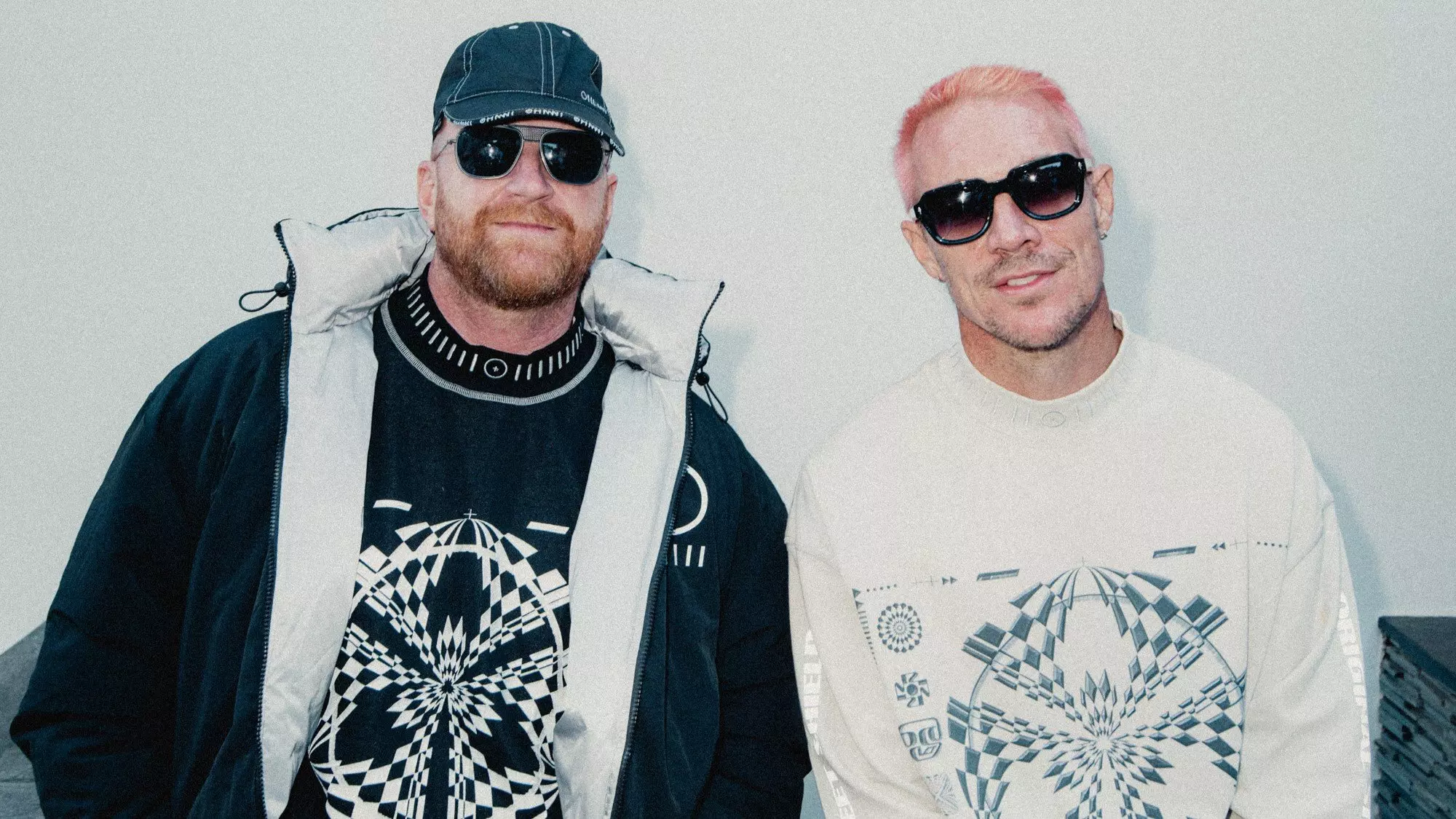
How Major Lazer's 'Guns Don't Kill People…Lazers Do' Brought Dancehall To The Global Dance Floor

Living Legends: Beres Hammond On His Enduring Career, Timeless Music & 'Brand, Jamaica!'
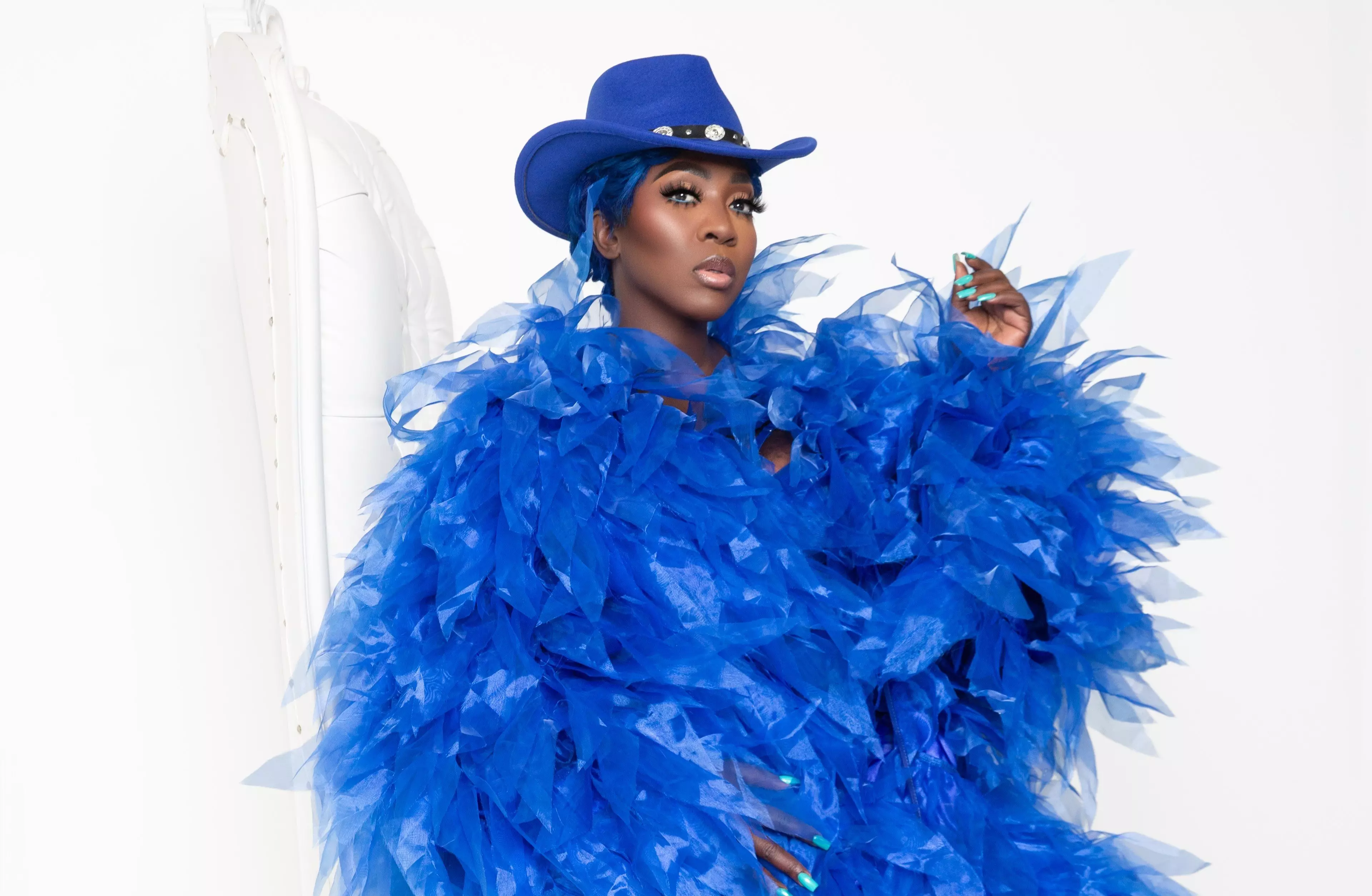
Dancehall Legend Spice Reflects On 'Mirror 25,' Her Near-Death Experience & Owning Her Own Vision
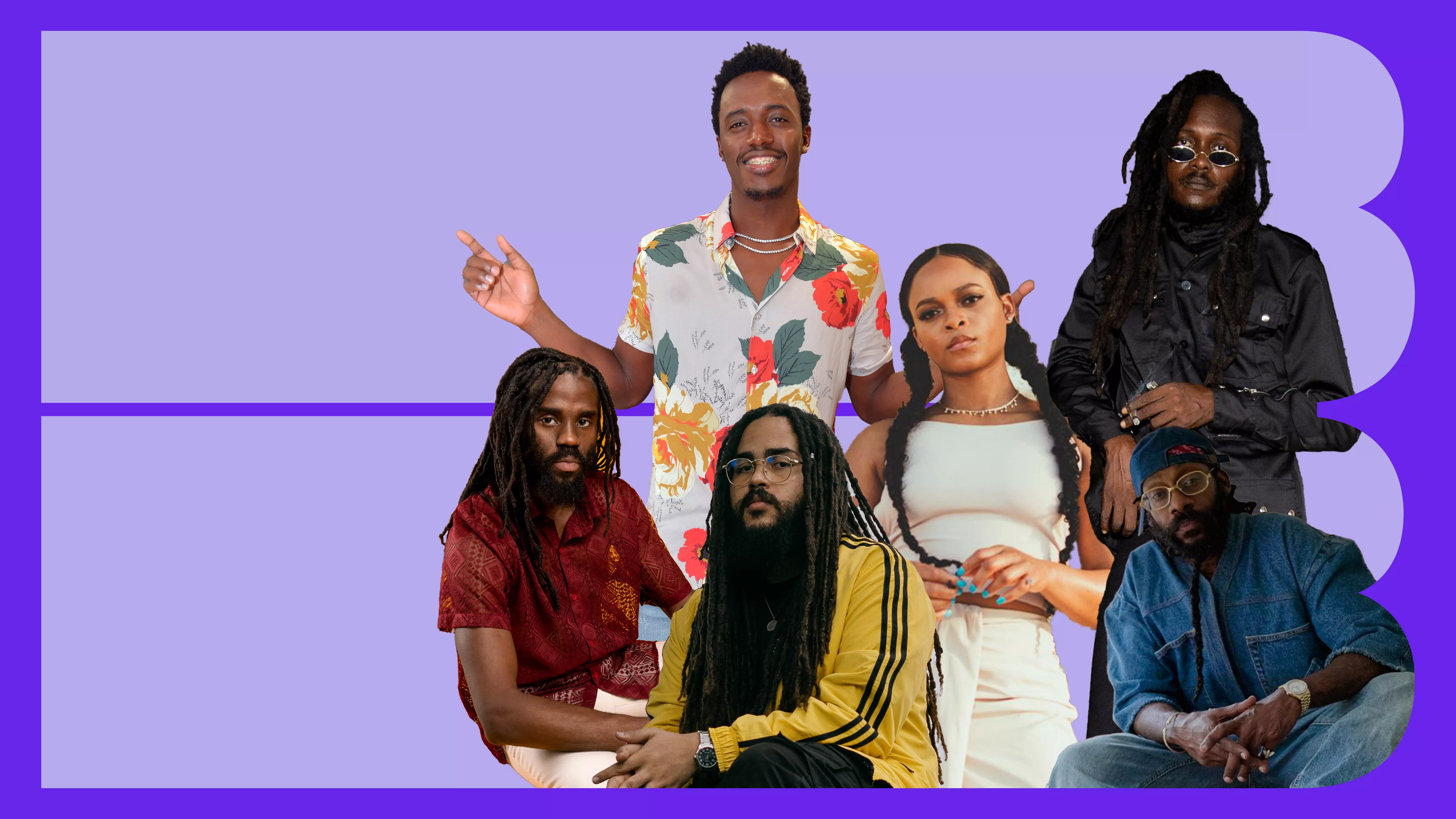
10 Artists Shaping Contemporary Reggae: Samory I, Lila Iké, Iotosh & Others
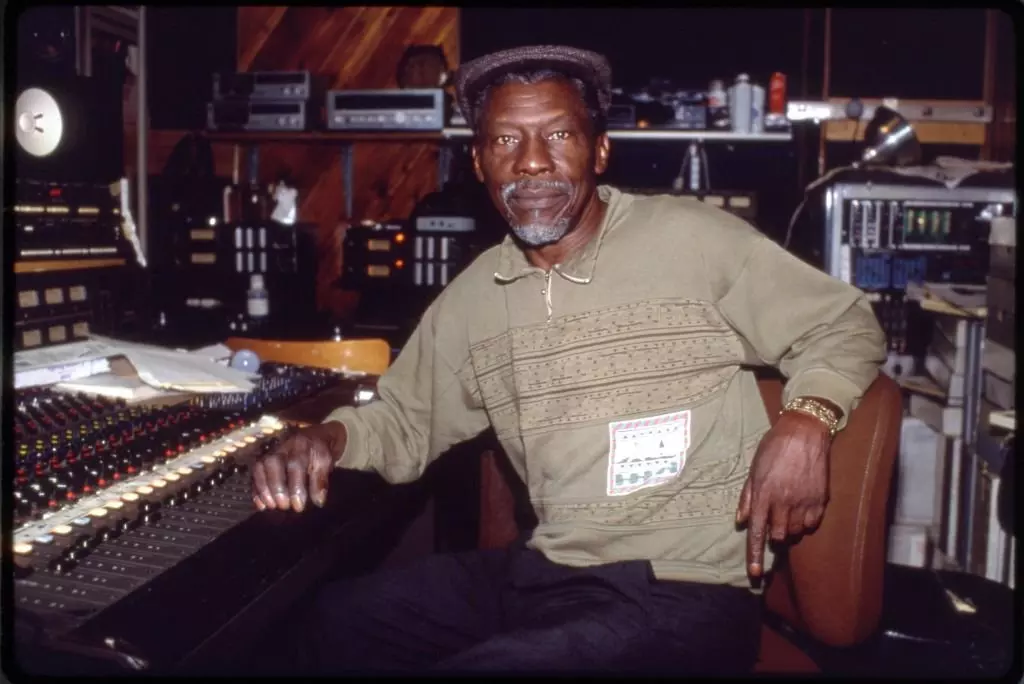
Remembering Coxsone Dodd: 10 Essential Productions From The Architect Of Jamaican Music

Photo: Renee Dominguez/Getty Images for SXSW
interview
Peanut Butter Wolf Talks New Campus Christy Album & What's Next For Stones Throw
As an artist and label head, DJ/producer Peanut Butter Wolf has a mission in mind: "Keep an open mind to different types of music. Be into groups and songs more than what genre it is."
Privately, Peanut Butter Wolf has always been a singer. It’s just that being the founder of the revered independent label Stones Throw Records is time consuming. For 28 years, the L.A.-based label has fearlessly released cutting-edge hip-hop, jazz, soul, and funk records, as well as innovative blends of those genres.
It’s been a slow burn to this moment, but on Dec. 6, Wolf will make his official debut as a lead singer in a covers project called Campus Christy. So determined to see this part of his musical life to fruition, Wolf uses his government name, Chris Manak.
"I’ve always liked to sing," Wolf tells GRAMMY.com, adding that he sang a bit in a band with [former] label art director Jeff Jank. "We used to do versions where I was singing. I always thought I sounded good, but when I heard the recordings after I was cringy. I was so off key. But then I started getting comfortable with it."
Campus Christy was developed in partnership with Brian Ellis, Egyptian Lover’s trusted co-producer and chameleonic studio wizard. The self-titled debut deftly moves through bombastic pop psych, space rock, twangy soft rock and psychedelic folk — the type of obscurities found through decades of crate digging. Even the most recognizable artist being covered, Neil Young, comes in the form of deep cut cover "Little Wing," the stripped-down opener from Young’s 1980 album Hawks & Doves.
If the cover choices have a unifying quality it’s that for Wolf, "people aren’t singing perfect. I think it’s more about having your emotion come through."
The last and only Peanut Butter Wolf album, My Vinyl Weighs A Ton — a collection of West Coast underground rappers over Wolf’s choice production — came in 1999, just three years after the DJ/producer founded Stones Throw. The subsequent years were spent proliferating the many faces of Madlib, experimenting with brilliant weirdos like James Pants, Vex Ruffin, and Koushik, introducing Mayer Hawthorne and DāM-Funk, and reintroducing the world to J Dilla and MF DOOM. At its heart, Stones Throw is a hip-hop label with a caveat from Wolf that the beauty of hip-hop is its acknowledgement of all musical forms and its ability to absorb those forms.
"I think that’s my mission statement at Stones Throw," he says, adding that that mission might not be particularly conscious. "Just to keep an open mind to different types of music. Be into groups and songs more than what genre it is."
Like all things Stones Throw, that ethos defines the Campus Christy record. Both projects are something of an extension of Peanut Butter Wolf’s personality: indifferent to genre, knowledgeable, but without snobbery — in a word, cool. From his home in Los Angeles, Peanut Butter Wolf spoke with GRAMMY.com about Campus Christy and the challenges of running an independent label for nearly 30 years.
The following conversation has been edited for length and clarity.
Campus Christy was originally your high school garage band’s name. What sound were those kids after?
It was a covers band; I still have the tape. We only did one show in our friend’s garage. I remember we did "All Day and All Night" by the Kinks — it was in the ‘80s; there was a ‘60s revival. We were discovering music from the ‘60s, but also we liked a lot of hip-hop and new wave. I think we did New Order. We did Kraftwerk’s "The Model," We did Buffalo Springfield. Really just party music, I guess. We also did "The Killing Moon."
Was there a catalyst that got you going to do this project?
It was really during lockdown. A lot of people have lockdown records; I’m not promoting it as that. It was during a lonely time where I wasn’t around anyone except my wife. Like a lot of people, I thought my life was in danger and I did lose people during that time too.
[At the same time], I was finding stuff that I didn’t know about on Discogs. The songs I was connecting to were the kind of bedroom-sounding loner pop. It ended up being more of those songs that I was choosing [for Campus Christy].
What keeps you open to taking those kinds of sonic risks in running a label when it might be easier or more logical to lean into proven successes or the familiar?
I’m just exposed to a lot of music. Instagram has helped out a lot too. People send me stuff, but I seek stuff out on my own.
I have a bar now [Highland Park's Gold Line] for six or seven years; we have DJs seven nights a week. It’s a vinyl bar with 10,000 records from my collection — I just love going in there. There’s younger people who make music that go there. It’s a meeting ground for a lot of people in the area of town that I live in. That’s become my happy place. There’s a lot of artists that are on my label that I got to know them at that bar.
Do the roster additions of Kiefer, Jerry Paper, John Caroll Kirby and Sudan Archives in the last five years feel like a sea change in the sonic direction of Stones Throw? These artists are bringing jazz, indie rock, new age fusion jazz, and experimental R&B into the catalog.
I think one change is just having the [recording] studio [at the Stones Throw office in Highland Park]. A lot of the stuff is recorded there. I think that might give it a similar sound sonically.
There’s a significant difference between the electro/synth pop of James Pants and the oddball indie rock of Jerry Paper, but also an overlap. There’s a difference between Madlib’s jazz experiments as Yesterday’s New Quintet and Kiefer’s jazz piano over a drum machine, but also kinda not.
You get it. [Electronic jazz musician] John Carroll Kirby’s been great. We’ve done so many records with him; he just signed with us for more. We generally do three album deals with people. One thing I’m thankful for is when people come back and they don’t necessarily have to. [Filipino-American beatmaker] Mndsgn is one of my favorite artists. We just signed with him to do more records after his three albums were done. We do have a lot of new artists; we just signed this guy Lionmilk; I’d put the genius word there.
Who would you like to see get more attention on the label?
I’ve always said [Filipino-American producer and singer] Vex Ruffin. I think Vex has a lot of great stuff. It’s been a longer journey for him. Part of that is he does have a family. Responsibilities make it tough for him to tour. I always feel like everyone on the label should be more known than they are. Sudan Archives just toured with André 3000 and has a lot of attention.
You also have to remember every artist has their own wants and needs in terms of how many fans they want. Some artists are happy with just having a record come out. Sometimes as the label, I get a little too excited and want a person to do that and this, but what I should be doing is asking them what their goals are and what they want. Then it becomes my job to help them realize that.
Part of the Stones Throw story is one of significant loss. How did MF DOOM’s passing in 2020 hit you, given the prior losses of Dilla and Charizma?
I’ve had a lot of losses.
The first rapper that I ever worked with, this guy Miles McNeese [a.k.a. MC Cool Breeze]. He was this guy in high school that really wanted to be a rapper. He borrowed a drum machine from somebody and gave it to me; we started making songs together. Miles was someone who really believed in me first. We recorded a lot of songs together. He eventually went to the army. I lost touch with him for awhile and I found out he committed suicide. That was one of my first losses.
Then I put out a record with this group Lyrical Prophecy and the lead rapper in that group died early. Those two guys were before losing Charizma. Obviously Charizma was a big one. When I found out about DOOM I was still in shock and disbelief. [His family] wanted privacy for a few months before telling anybody.
DOOM was always a good guy. It’s just hard when someone has so much more to give and they leave us. With Dilla and DOOM they both were at the height of their game.
In 2026, it will be 30 years of Stones Throw. Do you ever think about retirement?
I’ve thought about retiring all the way through it. [Laughs.]
It is my life. My friendships are the people that I work with. We hang out not just for music things. I don’t really see any reason to take a step back at this point. Through the years I’ve had people who want to buy the label. I do have some offers right now, but I haven’t even fielded it really.
Does it feel like whether you’re at the helm or not, you want the label to keep going?
Well, my daughter likes Taylor Swift and Ariana Grande, so I don’t know how that would work out. [Laughs.] She is four.
Blue Note is still around and they started in 1939, I think. Their first gold record — from what I read, I should look into this — was Nora Jones in the 2000s. [Editor's note: Come Away With Me was Blue Note’s first certified diamond record (2005).] The second one was a John Coltrane record from 1959. Our first gold album was Madvillainy, which just happened this year, 20 years after the release. The first gold singles are by Mild High Club, Los Retros, and Aloe Blacc is going to be the third one. Which is 20-something years later for Aloe Blacc.
You’re entering the golden years.
It is "the slow and steady wins the race" for me. The stuff that I like wasn’t always necessarily on top of the charts or even the top of the hip-hop charts. Main Source [album Breaking Atoms] was probably my favorite album of 1991 and it didn’t chart that high. DOOM’s KMD project didn’t chart at all. When we worked with him, it didn’t do that well for us either. It did better than most things on Stones Throw, but really at that point none of us thought it was going to reach another generation and become heralded as one of the most important hip-hop albums of all time.
Latest In Rap Music, News & Videos

Kendrick Lamar & Imagine Dragons' GRAMMY Mashup

Duckwrth Covers Coldplay's “Clocks” | ReImagined

10 Juice WRLD Songs That Showcase The Rapper's Legacy: "Lucid Dreams," "Robbery" & More

10 Facts About MF DOOM's 'Mm.Food': From Special Herbs To OG Cover Art

6 Indian Hip-Hop Artists To Know: Hanumankind, Pho, Chaar Diwaari & More

Photo: Jimmy Fontaine
news
Warner Music Group's Paul Robinson To Be Honored With 2025 Entertainment Law Initiative Service Award
Warner Music Group Executive Vice President & General Counsel Paul Robinson will be honored at the Recording Academy Entertainment Law Initiative's (ELI) annual GRAMMY Week event, which will also recognize the participants of the ELI Writing Competition.
The Recording Academy Entertainment Law Initiative (ELI) will honor Paul Robinson, Warner Music Group's executive vice president & general counsel, during its annual GRAMMY Week luncheon. Taking place at the Beverly Wilshire Hotel in Los Angeles on Friday, Jan. 31, 2025, during GRAMMY Week, and days ahead of the 2025 GRAMMYs, the event will celebrate Robinson with the 2025 Entertainment Law Initiative Service Award, presented each year to an attorney who demonstrates dedication to supporting and advancing the music community through their service, in recognition of his contributions to entertainment law.
In addition to honoring Robinson, the event, an official GRAMMY Week 2025 event, will bring together the nation's leading entertainment lawyers to celebrate excellence and also recognize the winner and runners-up of the annual Entertainment Law Initiative Writing Competition.
GRAMMY Week is the Recording Academy's weeklong celebration comprising official GRAMMY Week events celebrating the music community and current GRAMMY nominees in the lead-up to the annual GRAMMY Awards. GRAMMY Week 2025 culminates with the 2025 GRAMMYs, officially known as the 67th Annual GRAMMY Awards, which take place live on Sunday, Feb. 2, at Crypto.com Arena in Los Angeles. The 2025 GRAMMYs will broadcast live on the CBS Television Network and stream live and on-demand on Paramount+ at 8-11:30 p.m. ET/5-8:30 p.m. PT. Prior to the telecast, the 2025 GRAMMY Awards Premiere Ceremony will be held at the Peacock Theater at 12:30 p.m. PT/3:30 p.m. ET and will be streamed live on live.GRAMMY.com and the Recording Academy's YouTube channel.
Learn more about Paul Robinson below:
Paul Robinson’s contributions to the music industry extend beyond his role at Warner Music Group, where he joined the legal department in January 1995 as Associate General Counsel. After holding several senior roles, he was appointed Executive Vice President and General Counsel in December 2006. Robinson oversees WMG’s worldwide legal, business affairs, public policy, compliance, and corporate governance functions. Before joining WMG, he was an associate and later a partner at the New York City law firm of Mayer, Katz, Baker, Leibowitz & Roberts, representing corporate clients, artists, songwriters, and executives.
Robinson also serves on the Board of Directors and Executive Committee of the Recording Industry Association of America (RIAA) and is a member of the Board of Directors of the American Society of Composers, Authors and Publishers (ASCAP).
"As a part of its mission, the Recording Academy works to advocate for creators, and the Entertainment Law Initiative advances this through legal representation, celebrating the achievements of entertainment law practitioners, and providing year-round educational opportunities to cultivate future leaders in the field," Recording Academy CEO Harvey Mason jr. said in a statement. "Paul exemplifies these values, and we are proud to honor him with the ELI Service Award at the 2025 ELI GRAMMY Week Luncheon for his three decades at Warner Music Group, where he has championed fair practices and guided the industry through transformative changes."
Learn more about the Recording Academy Entertainment Law Initiative (ELI) below:
Since its inception, the ELI has fostered dialogue on key legal issues shaping the music industry, while supporting future leaders in entertainment law through year-round education, mentorship opportunities, and significant scholarships for law students. Each year, the recipient of the Service Award is selected by the ELI’s Executive Committee, which supports the program by recognizing deserving leaders within the entertainment law community and mentoring aspiring professionals in the field.
A cornerstone of the annual GRAMMY Week event is the annual ELI Writing Competition, which invites Juris Doctor and Master of Laws students from U.S. law schools to tackle a pressing legal issue in the music industry. Participants are challenged to craft a 3,000-word essay that presents a thoroughly researched analysis and a proposed solution. The following awards are then presented:
A $10,000 scholarship for the author of the winning paper
A $2,500 scholarship for each of the two runners-up
Publication of the winning paper in the American Bar Association's journal, Entertainment and Sports Lawyer
Travel and tickets to Los Angeles for the winner to attend the 2025 GRAMMYs, MusiCares Person of the Year event and the ELI GRAMMY Week Event
Learn more about the Recording Academy Entertainment Law Initiative and the 2025 GRAMMY Week luncheon.
Latest Recording Academy News & Initiatives

Your Vote, Your Voice: 6 Reasons Why Your GRAMMY Vote Matters

How To Vote In The 2025 GRAMMYs: A Complete Final Round Voting Guide For GRAMMY Voters
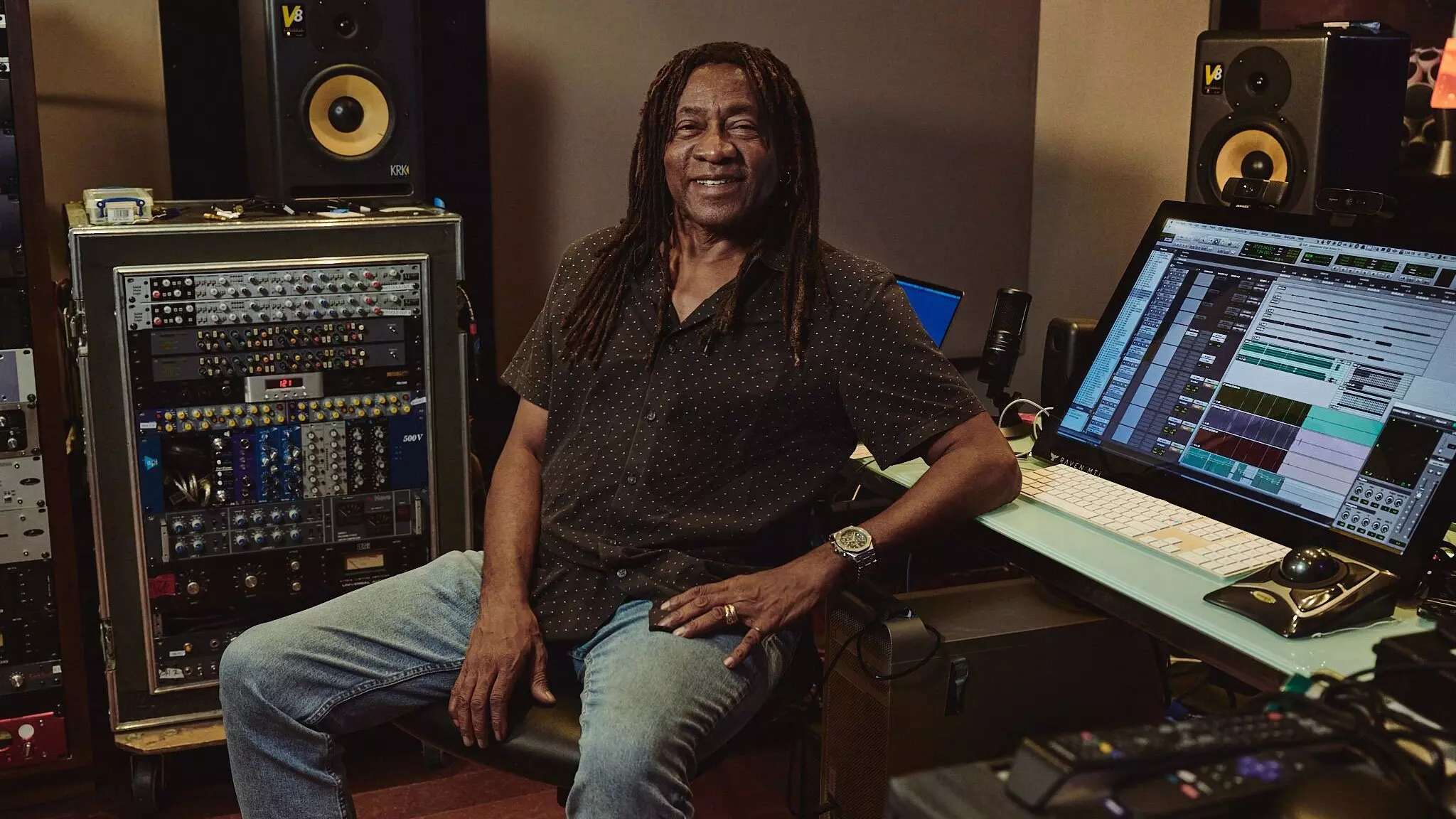
The Recording Academy Producers & Engineers Wing To Honor Jimmy Douglass During GRAMMY Week 2025 Celebration
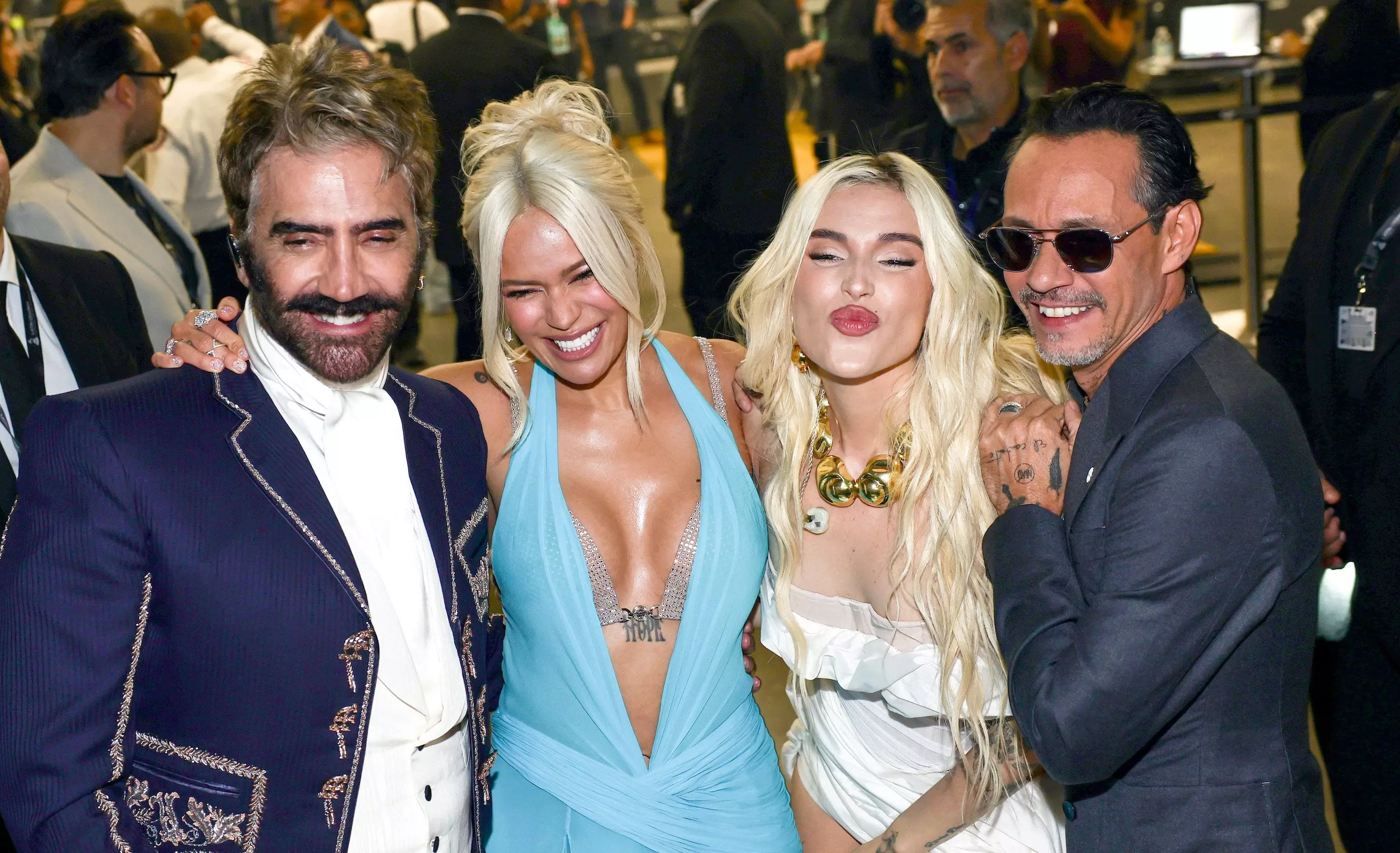
10 Meaningful Moments From The 2024 Latin GRAMMYs: Karol G's Heartfelt Speech, Tributes To Late Legends & More

Behind The Scenes At Latin GRAMMY Week 2024: Inside VIP Celebrations & More

Graphic Courtesy of the Recording Academy
list
Your Vote, Your Voice: 6 Reasons Why Your GRAMMY Vote Matters
With Final Round Voting for the 2025 GRAMMYs opening Thursday, Dec. 12, here are six key points underscoring the importance of your GRAMMY vote and participation in the annual GRAMMY Awards voting process.
Editor’s Note: Updated Friday, Oct. 20, 2023, to reflect voting and awards information for the 2024 GRAMMYs.
Editor’s Note: This article was updated and republished on Wednesday, Dec. 4, 2024, to reflect information about Final Round Voting for the 2025 GRAMMYs.
The annual GRAMMY Awards voting process is more transparent than it's ever been. Every year, the Recording Academy continues to fine-tune this process to its purest form: a peer-to-peer vote, from one member of the global music community to another.
The GRAMMY is the music industry's highest honor. As the only peer-recognized award in music, the GRAMMY represents the recognition and respect that can only come from within the family of music people. Your vote is important. Beyond recognizing and celebrating your fellow peers, your GRAMMY vote has a practical and real-life impact on the music world and its creators.
We've already covered the nuts and bolts of the GRAMMYs voting process with a detailed guide explaining everything you need to know about Final Round GRAMMY Voting for the upcoming 2025 GRAMMYs, officially known as the 67th GRAMMY Awards. Today, we're taking a deep dive into some of the many reasons why your GRAMMY vote matters this year and every year.
The Power Is In Your Hands
No matter the context in which you vote — from state fairs all the way to presidential elections — does it ever feel like your ballot is just one drop in a vast ocean? To a degree, this is understandable: One vote can seem minor when placed among hundreds or thousands of other votes.
Through the lens of the annual GRAMMYs voting process, don't forget this reality: Every GRAMMY vote truly counts and every Recording Academy Voting Member matters. Your vote directly determines the outcome of the GRAMMY Awards, including all GRAMMY winners and GRAMMY nominees. This has been proven throughout the decades, and it's about to be underlined again.
Without your input, and that of the Recording Academy's wider Voting Membership, the GRAMMYs cannot happen — period. Becoming a Recording Academy Voting Member — stepping up to that responsibility — is no small assignment. By doing so, you become a steward of this important tradition and honor, and you continue the legacy of music's only peer-voted award.
But other than just keeping an awards show running, why is GRAMMY voting such an awesome responsibility?
Learn More: The Impact Of A GRAMMY Win: Life After The Award
Your Vote Can Influence The Future Of Music
Whether you've been a Recording Academy Voting Member for months or for decades, you undoubtedly know that the impact of a GRAMMY Award continues far beyond GRAMMY night. Your vote can make a career-defining difference in the lives of artists and creators and inspire future generations to evolve the music industry at large.
Every year, the annual list of GRAMMY nominees and GRAMMY winners creates ever-lasting, industry-shifting ripple effects across music, and it often dictates what happens next through your speakers and on stages. In fact, the so-called "GRAMMY Effect," a well-established music industry phenomenon in which many GRAMMY nominees and GRAMMY winners experience significant music sales boosts following GRAMMY night, has positively impacted the careers of past winners like Jon Batiste, Olivia Rodrigo and Chris Stapleton, among many others.
When it comes to music, you can make a difference across the music industry and in the lives of today's artists and creators with your GRAMMY vote. Just take a look at the artists leading music today; they partly got there because of people just like you and your GRAMMY vote.
Your Vote Can Make GRAMMY History
Every vote has the potential to make GRAMMY history, and that's no different when it comes to the 2025 GRAMMYs. Your vote in every GRAMMY Category will contribute to these special moments in GRAMMY history.
Voting Allows All Voting Members To Be Heard
You're a member of the Recording Academy because of your genuine contributions to the music world and the distinct perspective you bring to this society of music creators. Your dedication to your craft is distinct, your voice is unique, and your GRAMMY vote is critical.
The fact of the matter is, we need you as a Voting Member to execute and evolve the annual GRAMMY Awards voting process. Our members are what make the Recording Academy and the GRAMMY Awards special and impactful. Your GRAMMY vote represents your voice within the Academy, and its impact will influence the music industry at large for years to come.
Plus, for new members who just joined the Recording Academy, voting allows you to make your voices heard right away!
Voting Advances Diversity Across Music
The Recording Academy's 2024 New Member Class, initiated this year, reflects the organization's ongoing commitment to Diversity, Equity & Inclusion across the ethnicities, genres and crafts that power the music industry, a pillar held true all year long.
Recording Academy Voting Members are responsible for representing the music community and celebrating the creative accomplishments of their peers, especially within their direct genres and communities. To help ensure the quality of voting every GRAMMY season, members are directed to vote only in their areas of expertise and those in which they are a peer. Your vote represents and impacts your direct community of artists and creators. Thus, by becoming a member and by actively voting, you are ensuring the GRAMMY Awards truly reflect the diversity of our global music industry.
Voting Is Not Just An Opportunity — It's A Responsibility
Being a Recording Academy Voting Member comes with many amazing perks: You can advocate to protect the rights of music makers and advance creators' interests on important policy matters via our Advocacy department; you can connect with fellow members through member-only initiatives and programs; you can run for a Recording Academy Board and/or participate on advisory committees; you can vote in Chapter elections; and so much more.
Some of the most impactful Recording Academy membership perks are directly tied to the GRAMMYs. As a Recording Academy Voting Member, you can participate in the GRAMMY Awards process on multiple levels, including: submitting your work and art for GRAMMY consideration; proposing rule changes to the awards process; and voting for the nominees and winners at the annual GRAMMY Awards.
Recording Academy Voting Members share an obligation to participate in the annual GRAMMY Awards voting process to help fulfill a vital part of the Academy's mission: to celebrate music and its makers. Ultimately, GRAMMY voting allows you to push our music industry forward and contribute to the ongoing evolution and legacy of the GRAMMY Awards.
Just like Recording Academy membership itself, GRAMMY voting is not just a privilege; it's a major responsibility each Voting Member holds. So, use your GRAMMY vote to make the impact you wish to see across the music industry.
More 2025 GRAMMYs News

Warner Music Group's Paul Robinson To Be Honored With 2025 Entertainment Law Initiative Service Award

Your Vote, Your Voice: 6 Reasons Why Your GRAMMY Vote Matters

How To Vote In The 2025 GRAMMYs: A Complete Final Round Voting Guide For GRAMMY Voters

The Recording Academy Producers & Engineers Wing To Honor Jimmy Douglass During GRAMMY Week 2025 Celebration

2025 GRAMMY Nominations: See Shaboozey, Anitta, Teddy Swims & More Artists' Reactions
